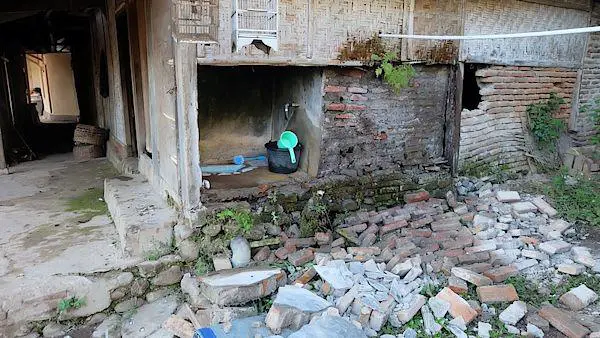Convicted war criminal Ghulam Azam, one of the most high profile leaders of Bangladesh's largest Islamist party, has died.
Abdul Mazid Bhuiyan, director of Bangabandhu Sheikh Mujib Medical University (BSMMU) in capital Dhaka where the Islamist party leader was undergoing treatment, told journalists that Azam died at around 10:10 p.m. local time Thursday.
Bhuiyan made the announcement at about 11:53 p.m. local time Thursday.
He said that Azam had been kept on life support since 9:30 p.m. local time Thursday.
Bhuiyan said process of handing over his body to his family will be completed on Friday night.
It was not known immediately when and where he will be buried.
It was not clear either whether his family members will be allowed to arrange a funeral ceremony in capital city Dhaka where Azam's Bangladesh's Jamaat-e-Islami party leaders and activists have not been reportedly allowed since long for carrying out anti- government political activities.
Azam has been kept at a prison cell of the BSMMU since Jan. 11, 2012, the day he was arrested.
He was sentenced to 90 years in prison for war crimes including mass killings in July last year.
The International Crimes Tribunal (ICT)-1 pronounced the verdict in capital Dhaka on July 15, 2013, saying the party's former chief will "die behind bars".
About 92-year-old Azam, considered spiritual leader of Jamaat, is alleged to have created and led pro-Pakistan militias which carried out numerous murders and rapes during the nine-month 1971 war of independence against Pakistan.
Azam has always denied the charges, arguing that they are politically motivated.
Azam's Jamaat, allegedly collaborated with the Pakistani forces in 1971 to prevent an independent Bangladesh, also says he is the victim of a political vendetta.
After returning to power in January 2009, Prime Minister Sheikh Hasina, daughter of Bangladesh's independence hero Sheikh Mujibur Rahman, established the first tribunal in March 2010, almost 40 years after the 1971 fight for independence from Pakistan to castigate those committed crimes against humanity during the nine- month war.
Apart from Jamaat high-ups, two leaders of main opposition Bangladesh Nationalist Party (BNP) are also facing trials. Both BNP and Jamaat have already dismissed the court as a government " show trial" and said it is a domestic set-up without the oversight or involvement of the United Nations.
But the ruling Bangladesh Awami League party denies the accusations of BNP and Jamaat, saying they are creating an anarchy in the country in the name of political programs to foil the ongoing war crimes trial.
 简体中文
简体中文



